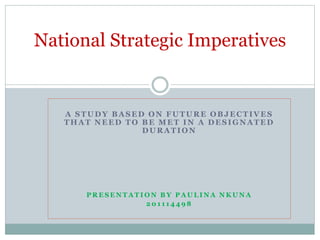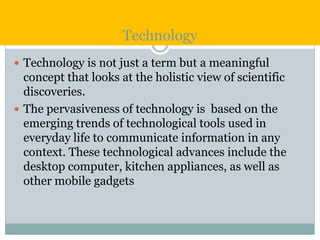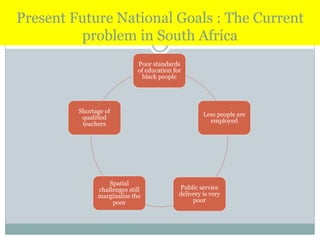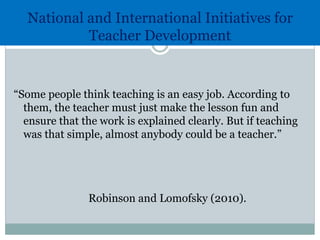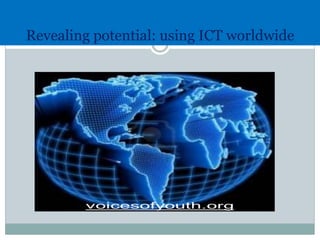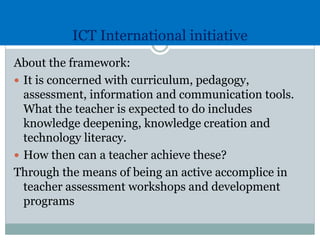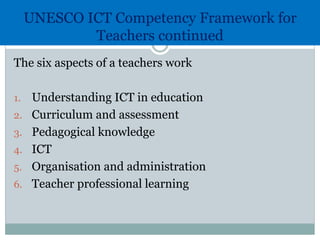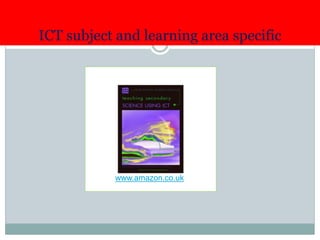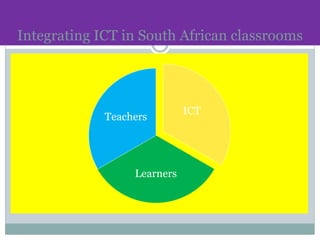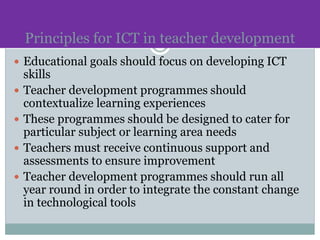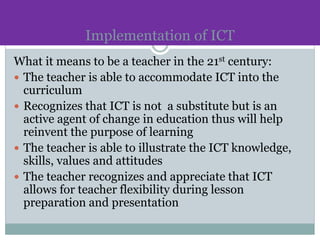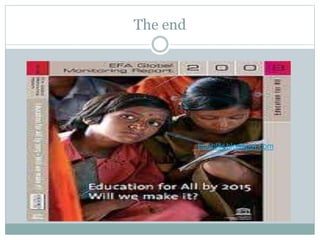This document presents a study on national strategic imperatives in South Africa that need to be met, with a focus on education goals. It discusses challenges like poor education standards, unemployment, and service delivery issues. National goals are outlined to address injustices, improve education quality, health, employment and service delivery. International initiatives for teacher development are also summarized, including the UNESCO ICT competency framework, guidelines for ICT teacher training, and ICT-enhanced Teacher Standards for Africa. The presentation provides insights into knowledge society goals and using technology and education to meet future national objectives in South Africa.
